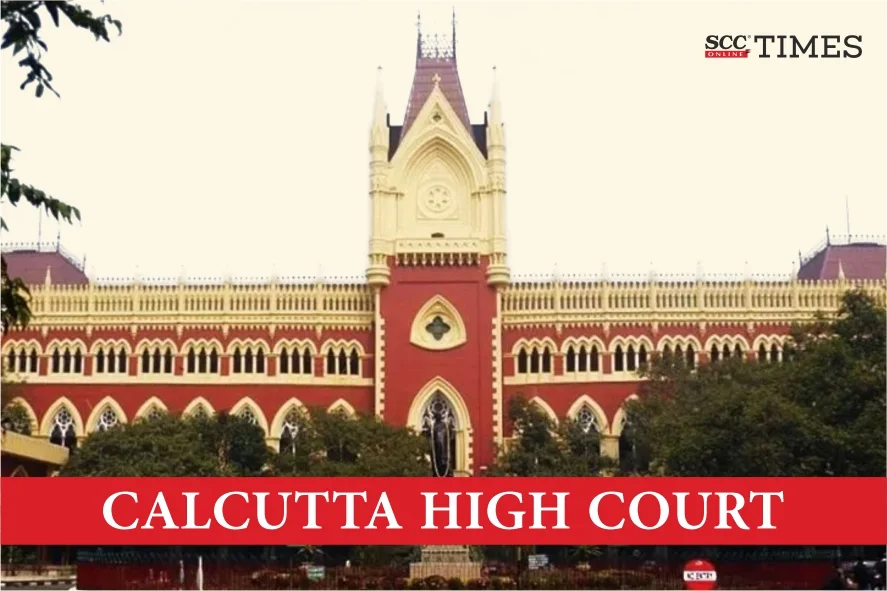Calcutta High Court: In a petition filed under Article 227 of the Constitution of India challenging the judgment and order passed by the Debts Recovery Appellate Tribunal, a single-judge bench comprising of Prasenjit Biswas,* J., has reiterated the principle that High Court intervention under Article 227 is warranted only in cases of grave dereliction of duty or flagrant violation of fundamental principles of law or justice, which were not established in the present case. The Court found no illegality or material irregularity in the DRAT’s judgment and affirmed the same.
Factual Matrix
In the instant matter, the petitioner bank sanctioned various loan facilities to the respondent. However, due to concerns regarding the borrower’s creditworthiness, the bank unilaterally reduced the sanctioned limits, leading to a dispute over repayment. The matter was brought before the Debts Recovery Tribunal (DRT), Kolkata, which partially allowed the bank’s application for recovery. The bank then appealed to the Debts Recovery Appellate Tribunal (DRAT), Kolkata, which noted that the bank unilaterally reduced the sanctioned limit without prior notice to the borrower, leading to disputes over the terms of the agreement and upheld the decision of the lower tribunal. The petitioner filed an application under Article 227 of the Constitution of India challenging the judgment and order dated 20-05-2011 passed by the DRAT in connection with appeal no. 11 of 2006.
Moot Point
Whether the High Court, in exercising its jurisdiction under Article 227 of the Constitution of India, improperly assumed the role of an appellate court and exceeded its jurisdiction?
Parties’ Contentions
The petitioner argued that it had valid reasons for reducing the loan limits and that the respondent failed to repay the loan as per the agreement. It was contended that the DRT and DRAT erred in their findings. On the other hand, the respondent argued that the bank’s unilateral reduction of the loan limits constituted a breach of contract and that the DRT and DRAT correctly ruled in their favor.
Court’s Assessment
The Court cited Boorugu Mahadeb & Sons v. Sirigiri Narasing Rao, (2016) 3 SCC 343 and held that while exercising jurisdiction under Article 227, the Court cannot act as an appellate court and reevaluate the facts of the case unless there is a clear error of law or jurisdictional error by the lower tribunals. The Court cited Jai Singh v. Municipal Corpn. of Delhi, (2010) 9 SCC 385, emphasising that Article 227 jurisdiction should be sparingly exercised and interference is warranted only in cases of grave dereliction of duty or flagrant violation of fundamental principles of law or justice.
Applying the above-mentioned principles in the cited precedents, the Court held that there is no grave dereliction of duty or flagrant violation of fundamental principles of law or justice, was established in the present case. The Court emphasised that the petitioner bank’s unilateral actions constituted a breach of contract and held that “the Bank as the creditor cannot be allowed to take benefits of its own wrong and cannot unilaterally change or amend the agreement entered in between the Bank and the opposite party.” Since there was no such error apparent on the face of the record, the Court affirmed the DRAT’s judgment.
Court’s Decision
The Court found no illegality or material irregularity in the DRAT’s decision and held that there is no ground for interference as “there is nothing to say that the findings of both the Tribunal are perverse or illegal or that no reasonable person can possibly come to such a conclusion which the tribunals have arrived at.” The Court dismissed the application filed under Article 227, affirming the judgment and order of the DRAT. The connected applications were disposed of and closed.
[Central Bank of India v. Premimer Feed Meals (P) Ltd., 2024 SCC OnLine Cal 1561, order dated 19-02-2024]
*Judgment by Justice Prasenjit Biswas
Advocates who appeared in this case :
Mr. Gautam Chakrabory, Counsel for the Petitioner
Mr. Sagar Bandyopadhyay, Ms. Soma Kar Ghosh, Mr. Arabinda Pathak, Counsel for the Opposite Party 6
Mr. Soumya Roy, Mr. Sayan Sarkar, Counsel for the Opposite Party







